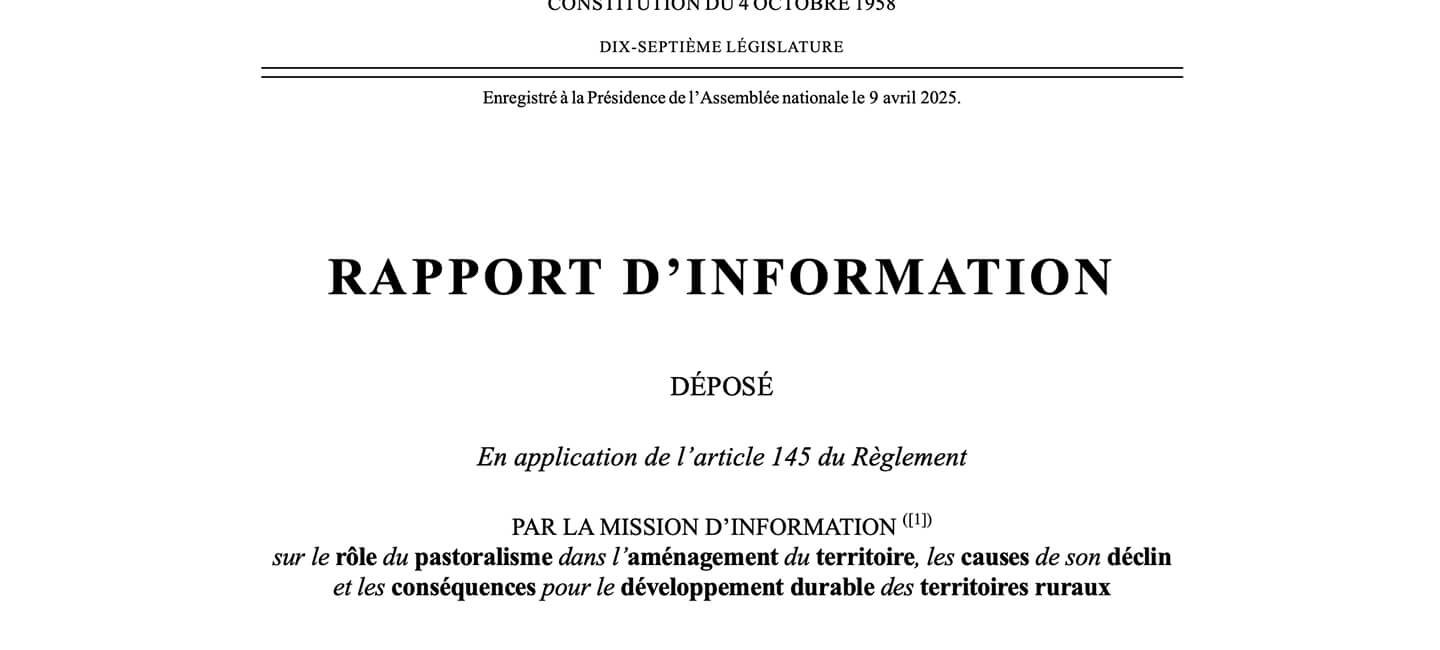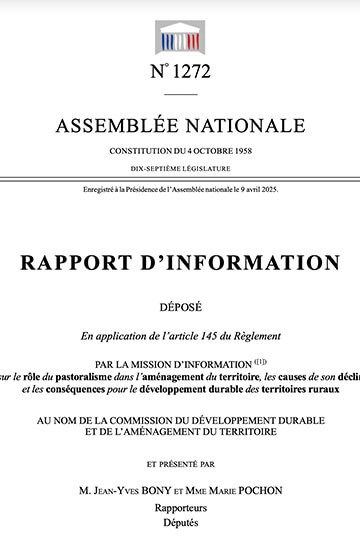

Parliamentary report on pastoralism: wolf attacks on livestock are decreasing
In its report on pastoralism published in early April 2025, the National Assembly acknowledges that, despite the growth of the wolf population in France, attacks on livestock have decreased in recent years. Killing these animals was never the solution. We once again call for the implementation of appropriate protective measures and for coexistence.
Wherever wolves are present, farmers’ unions portray them as bloodthirsty monsters and demand their extermination, as in the case of Milo and Mina who were relentlessly hunted on the Millevaches plateau. And whenever the prefectures do not allow as many of them to be killed as their detractors would have liked, the latter do not hesitate to encourage poaching. With the sheep soon to leave the plains for the mountains, wolves are more than ever in the crosshairs of those who want them dead. Yet they are far from being the danger we are led to believe.
A text that sets the record straight
On 9 April, the National Assembly published an information report on “the role of pastoralism in land use planning, the causes of its decline and the consequences for the sustainable development of rural areas”. Even while defending this farming method, MPs were unable to refute the figures. Contrary to what the unions would have us believe:
From 2018 to 2021, the number of animals injured or killed fell from 12,331 to 10,900. These losses, incidentally, represent less than 0.15% of the sheep population in France, while those due to other causes (transport accidents, falls, disease, etc.) are ten times higher.
To reinforce this downward trend, better protection of flocks is essential. We keep repeating this, and on this point too, the elected representatives agree with us. They point out that in 2024, if attacks and animals injured or killed have increased in regions where wolves have only recently appeared, it is “mainly due to the weakness of the protective measures which do not yet exist or are only just being put in place, and because shooting operations are not always very effective”.
Instead of persecuting these animals, achieving nothing more than to disperse the packs, or seeking to establish the presumed non-protectability of cattle in an absurd ministerial decree against which we have just lodged an appeal, the government would do better to finally anticipate the arrival of wolves.
Pastoralism is riding roughshod over nature
Before designating canids as the enemies of our countryside, the livestock lobby ought to put its own house in order. Now largely industrialised, pastoralism no longer bears any resemblance to the idyllic image it touts. Between soil erosion, flood risks, deforestation, degradation of water quality, wild animals driven from their territories due to insufficient resources, etc., grazing poses a real threat to the environment, as demonstrated by a report by two scientists specialising in conservation. And to preserve this deadly industry at all costs, we would also have to slaughter wild animals and destroy what little unspoilt nature remains which we humans so desperately need? We will not accept this!
If, like 81% of French people (Ipsos/One Voice survey, November 2024), you recognise that the return of wolves to France is a real boon for biodiversity, sign our petition to put an end to the persecution they are suffering!